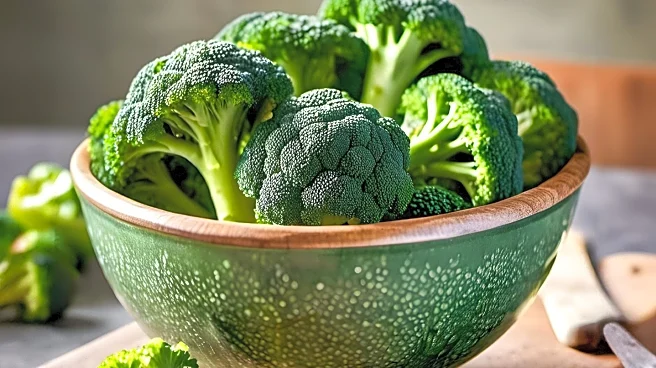What's Happening?
A recent scientific publication has highlighted a potential link between the consumption of cruciferous vegetables, such as broccoli and bok choi, and a reduced risk of colon cancer. The study, which is a systematic review of observational research, suggests that individuals who consume higher amounts of these vegetables may experience a 17 percent reduction in colon cancer risk compared to those who do not consume them. However, the study's authors caution that these findings should be interpreted carefully due to methodological limitations inherent in observational studies. The media has widely reported these findings, but experts emphasize that the data are not strong enough to definitively conclude that cruciferous vegetables directly prevent cancer.
Why It's Important?
The study's findings contribute to ongoing discussions about the role of diet in cancer prevention. While the association between cruciferous vegetable consumption and reduced cancer risk is noteworthy, it underscores the complexity of nutritional epidemiology and the challenges in establishing causation. This research may influence dietary recommendations and public health strategies aimed at cancer prevention. However, experts warn against oversimplifying the relationship between specific foods and cancer risk, highlighting the need for more rigorous studies, such as randomized clinical trials, to better understand these dynamics.
What's Next?
Further research is needed to explore the causal relationship between cruciferous vegetable consumption and cancer risk. Scientists may conduct randomized clinical trials to address the limitations of observational studies and provide more definitive evidence. Public health officials and nutritionists might consider these findings when developing dietary guidelines, but they will likely emphasize a balanced diet and overall healthy lifestyle as more effective strategies for cancer prevention.











